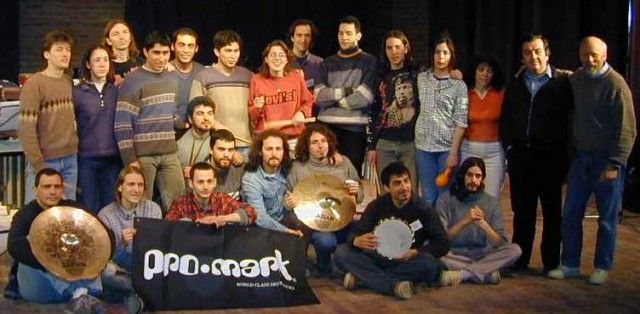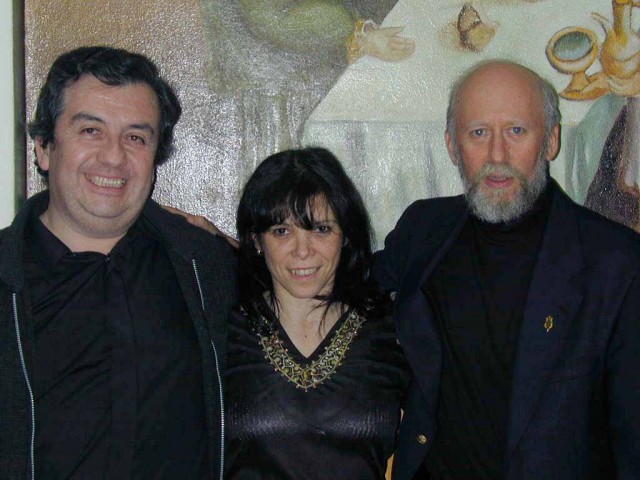International Percussion Seminar
Dr. Stuart Marrs
International Percussion Seminar
Patagonia, Argentina

During the week of August 15-19, 2000, I was an invited artist at the International Percussion Seminar series sponsored by the Fundación Cultural Patagonia, Dr. Norberto Mario Rajnieri, President. Daily activities consisted of two sessions: in the morning I gave clinics and master classes on solo timpani literature and orchestral repertoire; in the evening I directed percussion ensemble rehearsals leading up to a final concert in which all participants performed.
Perhaps most interesting about this endeavor is that it does not take place in Buenos Aires, the cultural center of the country, but rather in the Rio Negro province in Patagonia, a relatively remote part of the country. This is no strange quirk or whim, but rather the product of a well-constructed plan for the decentralization of high-level development of the arts in Argentina. It is the brainchild of philanthropist Dr. Norberto (Tilo) Rajnieri, who established the Cultural Foundation of Patagonia which supports the National Institute of Arts (INSA) located in the city of General Roca. Twenty-three Argentine students came from far and wide to take part in the seminar including one who traveled 29 hours from the province of Tucumán. Others came from the capital city of Buenos Aires, Morón, Mendoza, San Juan, Santa Fe, and Córdoba.
The level of the students was quite high: a level that one would expect at any fine U.S. university or conservatory program. My hosts were Stella Pellegrini, professor of percussion at INSA and Arturo Vergara, timpanist in the venerable Teatro Colón orchestra and adjunct professor at INSA. Angel Frette, with whom I first made contact for this seminar at PASIC ’99, also is an adjunct professor of marimba at the institute. That the students should be at such a high level of technical and musical development should not come as a surprise, since Buenos Aires and the Teatro Colón in particular, has a long history as a world class center of orchestral music and of the arts in general. What is surprising is that it is happening in Patagonia!
Many of the students came in groups from their respective institutions. Thus, they had already prepared some of the pieces that we performed on the concert. The group from Morón, for example, had already performed the Toccata by Chávez in pubic and so I was able to work with them on high level detail and musicality — freed as we were from the task of “learning the notes.” This was also the case with most of the work in master classes and ensemble rehearsals. Students had prepared to the best of their ability for the seminar. Professionally, this was a dream situation. On a personal level, I couldn’t have been more pleased with the trip. First of all, the warm hospitality offered by everyone involved: administration, faculty, students, and staff, made each day a pleasure. It was also somewhat of a homecoming for me since I lived and worked for so many years in Latin America and a large part of who I am today, I owe to my years in Bolivia and Costa Rica. All in all, I felt muy en casa.

Also delivering seminars in this series are the following artists:
June 5-9, 2000 William Moersh, University of Illinois
September 18-22, 2000 Rebecca Kite, Minneapolis, MN
November 20-24, 2000 Eduardo Gianisella, Universidad de San Pablo
In addition to the considerable investment by the Argentine sponsors of the Seminar series, Fundación Cultural Patagonia, Instituto Patagónico de Arte, and others, I must express gratitude to the following entities and companies for their support which made this worthwhile activity possible:
For those of you who read Spanish, here is a link to an interview I gave to the Rio Negro newspaper. Reporter Clara Vouillat did a fine job putting the full-page article together.
